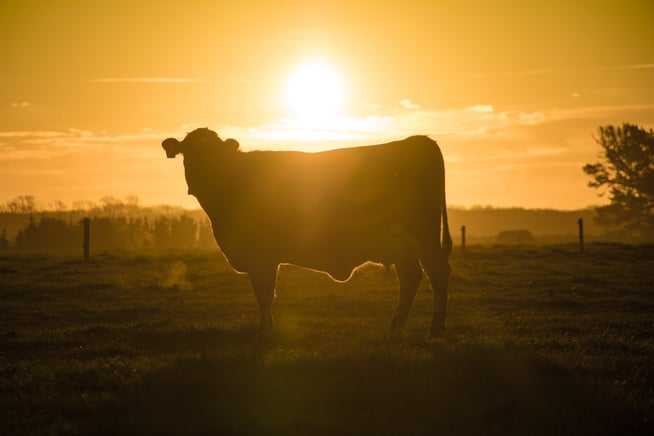
Solar energy is increasingly seen as a viable option for homes and businesses of many types. But can farmers, in particular, benefit from solar? Absolutely!
Whether your farm is large or small, or focused on dairy production or horticulture — a solar energy solution can be tailor-made for your business. Solar power can lower utility costs across agri-business applications, saving farmers money and reducing overheads. Also, you can sell back excess solar energy to your local utility retailer.
With solar, farmers can often look forward to recouping installation costs fairly quickly, and even see a small boost in income. Here, we'll explain more about why leveraging solar might be ideal for your farming enterprise.
How farm solar energy works
The essential piece of hardware that captures energy from the sun is the photovoltaic (PV) solar panel. Whether positioned on your shed’s roof or ground-mounted, PV panels capture sunlight for conversion into electricity.
Photovoltaic cells in the solar panels take in sunlight to produce direct current (DC), and an inverter transforms it into 230-volt alternating current (AC). The AC power is then transferred to your main switchboard, to be distributed as needed. Any unused electricity can be sold back to the grid.
Instead of having one large inverter, you may opt for a system with micro-inverters attached to each solar panel, which locally convert DC to AC current as it’s captured. This setup can yield more power, and micro-inverters last longer than a single large inverter.
The best modern installations come with cloud-based software that lets you monitor performance from a computer or mobile device. This way, you know how much energy you’re generating and can keep tabs on utility savings.
The solar consultation process for farms
A solar energy system for a farm should be a completely customised solution. A consultant can help determine the system size that will yield the highest return on investment for your farm, based on a number of factors.
For example, the amount of power you use on a daily basis is an important consideration. Depending on your average daily power usage over a year, a certain energy capacity and number of solar PV panels will be recommended. A consultant will also help design the system so that your farm uses most of the energy generated by the panels, which leads to the biggest possible savings.
An appropriately-sized system, rather than one that’s too big, lets you use most of your power during sunlight hours, which increases your efficiency and optimises your rate of return. While this might seem to reduce the amount of excess power you can store and sell back, the possibility of storing extra solar power and generating revenue from it would still exist.
Also, keep in mind that your solar energy system generally comes with a 25-year warranty on power output. After a 25-year period, PV panels may drop to about 20% of the efficiency they had at the beginning. But within that length of time, you can see your system ‘pay for itself’, freeing up a lot of overhead expenses.
The bottom line? A good solar consultation process is all about finding the right fit for your farm’s energy consumption needs. A professional will walk you through the best system, showing you the possibilities for savings and ROI.
The ultimate benefits of solar energy for farmers
Perhaps the biggest benefit of solar power for farms is the cost savings. By using solar — an especially ‘clean’ form of clean energy — to reduce your reliance on the grid, you can reinvest utility savings into your farming needs. If equipment purchases or expansion are priorities for your farm, solar can help you get there.
Then, there’s the possibility of a new source of income. By efficiently using the bulk of your solar power during sunlight hours (when farmers are most active in caring for crops or managing livestock) and reducing your power consumption in small ways during off-peak hours, you can feed extra unused energy back into the grid and sell it at a profit. In this way, solar can add to your bottom line.
Finally, by adopting solar, you’ll be a part of a trend of sustainability that more and more Kiwi farmers are thinking about. By taking action on renewable energy, you can build goodwill as you help secure a healthier New Zealand environment for future generations.
Solar energy is a natural fit for farms of any size.
Whether you grow crops, raise animals, or both, there’s a solar power solution that will help save money, potentially add income, and make you part of a powerful new movement in NZ agriculture to preserve our environment!
For a more detailed breakdown of how solar is benefitting farmers all over New Zealand, click here, or...








